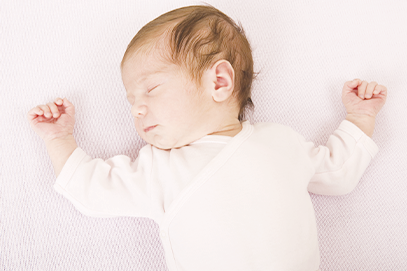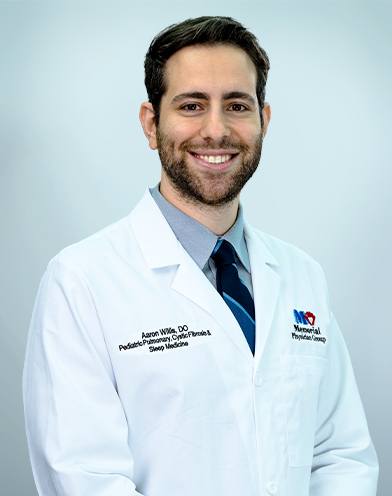Dangers of Weighted Sleep Sacks
July 19, 2024

Sleep is so important for our little ones. As we know, it plays a crucial role in their brain growth and development, and it has a direct effect on happiness, alertness and attention, vocabulary acquisition, learning, and memory consolidation.
Given the importance of sleep, and the fact that infants can spend up to 18 hours of their day sleeping in a 24 hour period, Aaron Willis, DO, a pediatric pulmonologist and sleep medicine specialist at Joe DiMaggio Children's Hospital, explains why it is important to provide a safe sleep environment for babies to grow and thrive in, and the reasons you should avoid weighted sleep sacks.
Are weighted sleep sacks safe for babies?
Much like weighted blankets for adults, a new wave of weighted sleep sacks and swaddles products have popped up with ads designed to convince parents that their newborn baby will fall asleep faster and sleep for longer stretches of time throughout the night because of the gentle pressure they can provide during sleep.
While initially well intended, these products have not been without their serious consequences for our most vulnerable babies.
In support of its position regarding needing more research to prove that weighted infant sleepwear is safe, the American Academy of Pediatrics (AAP) updated their safe sleep guidelines in 2022 and recommended not using any weighted sleep object (e.g., blankets, sleepers, swaddles) near or on a sleeping baby.
Why are weighted sleep sacks dangerous?
More recently, the national spotlight has once again returned to weighted sleep sacks due to their potential for increasing the risk of SIDS or sudden infant death syndrome.
For example, two of the most common brands of weighted sleep sacks in the market provide weighted pressure in the range of a few ounces to over 1.5 pounds. By comparison to your baby’s total weight, this is a significant amount of pressure.
Additionally, during deep sleep, an infant's breathing becomes shallow and their chest walls are much more moldable and flexible. This extra weight can lead to breathing troubles with drops in oxygen and potentially stoppage of breathing episodes, such as apneas, which can lead to sudden infant death (SIDS).
To me, it does not make sense to put your child at risk with weighted sleep products. I might be cautious, but as a doctor specializing in pediatric pulmonology and sleep medicine, I've seen the toll that SIDS can take on families, and I would not wish this on anyone.
So please, everyone, sleep well and sleep safe.

